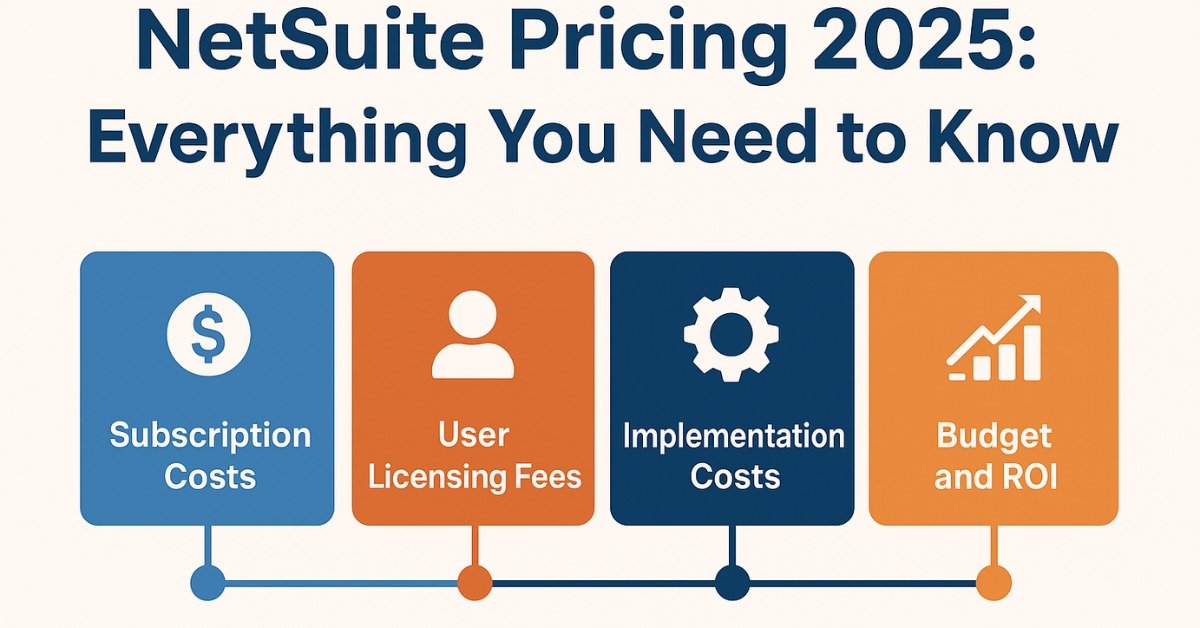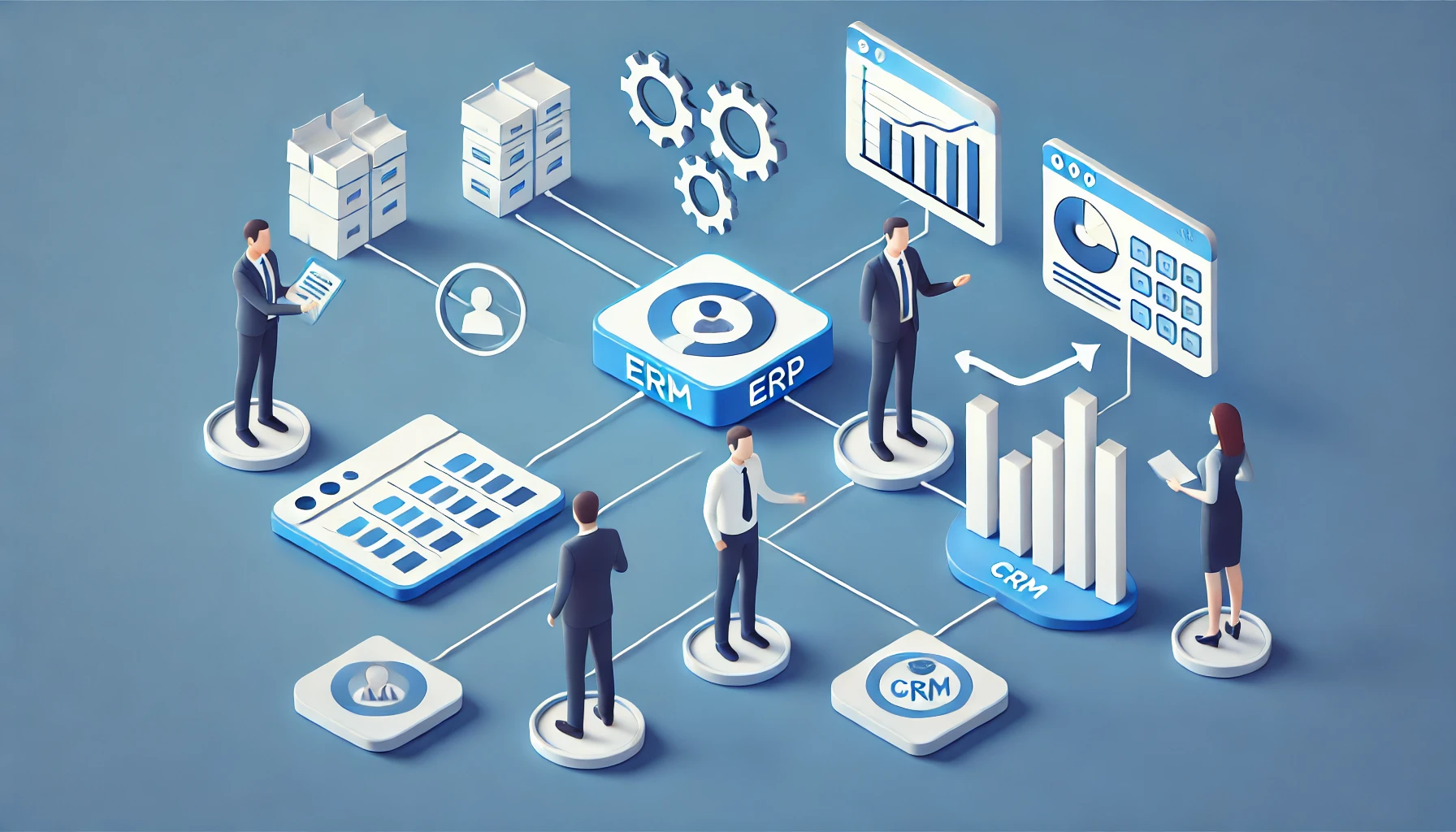Table of Contents
ToggleUnleashing Efficiency : The Transformative Benefits of ERP For Businesses
In the fast-paced world of business, staying ahead of the competition requires more than just determination; it demands strategic decision-making and streamlined processes. Enter Enterprise Resource Planning (ERP), a game-changer that has revolutionized the way businesses operate. In this blog, we’ll delve into the personalized journey of discovering the myriad Benefits of ERP for Businesses.
Chapter 1: The ERP Advantage - A Bird's Eye View
Before we dive into the personalized experiences, let’s take a panoramic view of the ERP advantage. ERP is a comprehensive software solution that integrates and manages business processes across various departments in real-time. This integration provides a holistic view of operations, facilitating better decision-making and enhancing overall efficiency.
- Holistic Data Integration: ERP breaks down data silos, ensuring that information flows seamlessly across departments, preventing redundancies and inaccuracies.
- Real-Time Operations: By providing real-time data, ERP enables businesses to make quick decisions based on the latest information, enhancing agility in response to market changes.

Chapter 2: Streamlining Operations -ERP for Business
Imagine a day in the life of a business owner, juggling between multiple spreadsheets, disparate systems, and manual processes. Meet Sarah, a small business owner who struggled with inventory management, order processing, and financial reporting. Implementing an ERP system transformed her operations, consolidating data into a centralized platform. Now, Sarah experiences a seamless flow of information, leading to quicker decision-making and improved customer satisfaction.
- Inventory Management: ERP automates inventory tracking, minimizing stockouts, and preventing overstock situations, allowing businesses to optimize their stock levels.
- Order Processing Efficiency: Automation of order processing reduces errors, accelerates order fulfillment, and enhances customer satisfaction.
- Financial Reporting Accuracy: With ERP, financial data is updated in real-time, eliminating manual errors and providing accurate, up-to-date financial reports.

Chapter 3: Enhancing Collaboration - Bridging Gaps, Boosting Productivity
In the interconnected world of business, collaboration is key. ERP acts as the bridge that connects different departments, fostering communication and collaboration. Take James, an IT manager frustrated with the siloed information within his organization. With ERP, he witnessed a cultural shift, breaking down communication barriers and creating a more collaborative work environment. This not only boosted productivity but also ignited innovation across teams.
- Unified Communication: ERP facilitates communication by centralizing information, allowing teams to collaborate seamlessly and share insights across the organization.
- Cross-Functional Collaboration: By breaking down silos, ERP encourages collaboration between departments, leading to more informed decision-making and improved project outcomes.
- Innovation Culture: A collaborative environment nurtured by ERP fosters innovation, as employees from different departments share ideas and perspectives.
Chapter 4: Data-Driven Decision Making - Empowering Business Leaders
In the digital era, data is the new currency. ERP empowers business leaders with real-time insights, transforming decision-making from intuition-driven to data-driven. Meet Alex, a CEO navigating a competitive market. ERP provided him with actionable insights into market trends, customer behaviour, and operational efficiency. This data-driven approach empowered Alex to make informed decisions, giving his business a competitive edge.
- Real-Time Analytics: ERP provides executives with real-time analytics, allowing them to make data-driven decisions swiftly.
- Predictive Analysis: ERP systems leverage advanced analytics to predict future trends, enabling businesses to proactively respond to market changes.
- Operational Insights: By providing insights into operational efficiency, ERP allows leaders to identify bottlenecks and optimize processes for better performance.

Chapter 5: Scalability - Growing Painlessly, One Step at a Time
As businesses evolve, scalability becomes a critical factor. ERP systems are designed to grow with your business, ensuring a seamless transition during expansion. Let’s explore the journey of a startup founder, Emily. Initially hesitant about investing in ERP, she soon realized its scalability benefits. With modules that could be added as her business expanded, Emily’s ERP system adapted to her growing needs, eliminating the pain points of scaling up.
- Modular Structure: ERP’s modular design allows businesses to add or remove features as needed, providing a flexible and scalable solution.
- Reduced Implementation Costs: Scalability in ERP ensures that businesses do not face exorbitant costs when expanding, as the system can grow incrementally.
- Adaptable Workflows: Scalable ERP systems allow for adaptable workflows, accommodating changes in business processes as the organization grows.
Chapter 6: Cost Efficiency - A Penny Saved is a Penny Earned
Finances are the lifeblood of any business, and ERP contributes significantly to cost efficiency. Mark, a CFO faced with the challenge of reducing operational costs, found ERP to be a financial saviour. By automating manual processes, minimizing errors, and optimizing resource utilization, Mark not only achieved cost savings but also witnessed a rapid return on investment. ERP proved to be a strategic financial ally for Mark’s organization.
- Process Automation: ERP automates repetitive tasks, reducing the need for manual labour and lowering operational costs.
- Error Reduction: By minimizing errors in data entry and financial transactions, ERP prevents costly mistakes that could impact the bottom line.
- Resource Optimization: ERP helps in optimizing resource allocation, ensuring that businesses allocate their resources efficiently, leading to cost savings.
Chapter 7: Regulatory Compliance - Navigating the Legal Landscape
In the ever-evolving landscape of regulations, compliance is non-negotiable. ERP systems are equipped with features that ensure adherence to industry-specific regulations. Sarah, a compliance officer, found solace in ERP when faced with the daunting task of keeping her organization compliant. The system’s built-in controls and automated reporting simplified the compliance process, allowing Sarah to navigate the legal landscape with confidence.
- Automated Compliance Checks: ERP systems automate compliance checks, ensuring that businesses adhere to industry regulations without manual intervention.
- Real-Time Monitoring: ERP provides real-time monitoring of compliance metrics, enabling organizations to address issues promptly and avoid legal repercussions.
- Audit Trail: ERP systems maintain detailed audit trails, providing a comprehensive record of transactions and activities for compliance audits.
Chapter 8: Customer Satisfaction - The Heartbeat of Business Success
In the age of customer-centricity, satisfying customer needs is paramount. ERP contributes to this by improving order fulfillment, reducing lead times, and enhancing overall customer experience. Enter David, a customer service manager striving to exceed customer expectations. With ERP, David witnessed a significant reduction in order processing times, leading to happier customers and increased loyalty. ERP became the heartbeat of customer satisfaction for David’s team.
- Order Fulfillment Speed: ERP streamlines order processing, reducing lead times and ensuring timely delivery, ultimately enhancing customer satisfaction.
- Personalized Customer Interactions: By providing a 360-degree view of customer interactions, ERP enables businesses to personalize their engagement, fostering stronger customer relationships.
- Effective Communication: ERP enhances communication with customers by providing accurate and up-to-date information on order status, inventory levels, and product availability.
Chapter 9: Advanced Analytics - Unveiling Hidden Opportunities
Beyond standard reporting, ERP systems offer advanced analytics that unveil hidden opportunities for growth. Sarah, a marketing executive, harnessed the power of ERP analytics to identify emerging market trends, target demographics more effectively, and optimize marketing strategies. This personalized experience with ERP analytics empowered Sarah to stay ahead of the curve, ensuring her marketing campaigns were not just impactful but also ahead of the competition.
- Market Trend Analysis: ERP analytics enable businesses to analyze market trends, helping them stay ahead of competitors and capitalize on emerging opportunities.
- Customer Behaviour Insights: By analyzing customer data, ERP systems provide insights into buying patterns and preferences, allowing businesses to tailor their products and services accordingly.
- Optimized Marketing Strategies: ERP analytics assist in optimizing marketing strategies by providing data-driven insights, ensuring that marketing efforts are targeted and effective.
Chapter 10: Mobile Accessibility - Empowering the Modern Workforce
In an era where flexibility is valued, ERP’s mobile accessibility is a game-changer. Meet Michael, a remote project manager who found himself on the move frequently. ERP’s mobile features allowed him to access real-time data, collaborate with team members, and make critical decisions, all from the palm of his hand. The flexibility offered by ERP’s mobile accessibility not only increased Michael’s productivity but also enriched his work-life balance.
- Remote Decision-Making: ERP’s mobile accessibility enables decision-makers to stay connected and make critical decisions from anywhere, enhancing overall business agility.
- Collaboration on the Go: Mobile ERP facilitates collaboration among team members, even when they are geographically dispersed, promoting efficient teamwork.
- Work-Life Balance: Mobile ERP contributes to a healthier work-life balance by allowing employees to access information and perform tasks outside traditional office hours.

Conclusion
As we conclude this exploration of the personalized benefits of ERP for businesses, it’s evident that ERP is not just a tool; it’s a strategic ally that empowers businesses to thrive in the dynamic landscape. From streamlining operations to enhancing collaboration, enabling data-driven decisions, and ensuring regulatory compliance, ERP is the compass that guides businesses towards success. In the ever-evolving world of commerce, those who embrace ERP are not just adapting to change; they are shaping the future of their industries.
So, are you ready to unlock the transformative benefits of ERP for your business? Embrace efficiency, empower your teams, and chart a course towards unparalleled success with ERP. The future awaits, and it’s personalized just for you.



